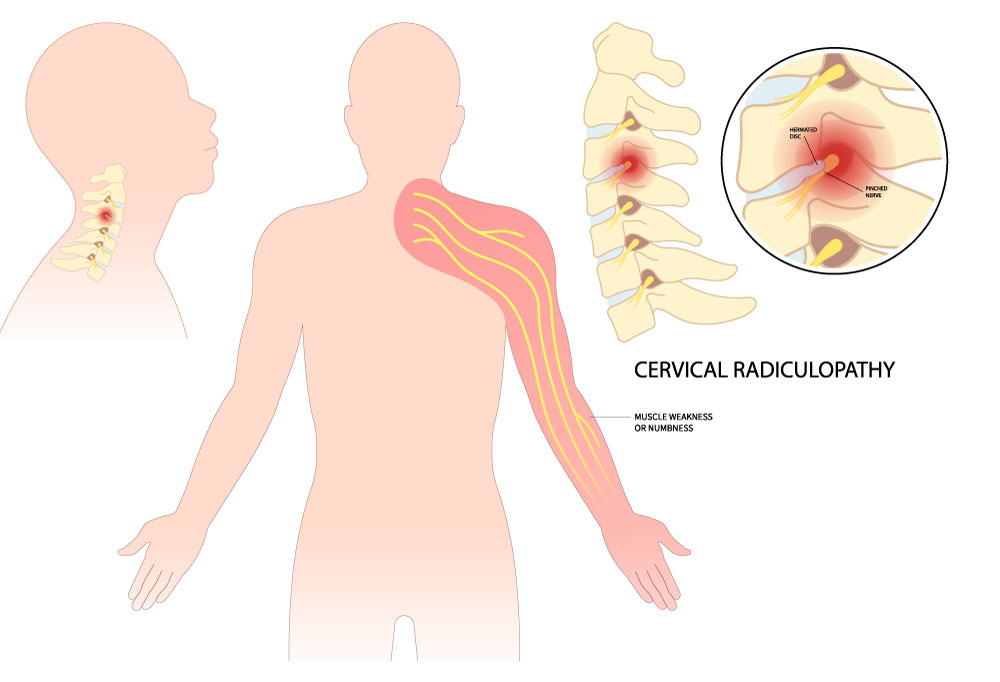
Understanding Cervical Radiculopathy: Causes, Symptoms and Treatment
Cervical radiculopathy is a term used to describe pain that occurs when cervical nerves in the neck become injured or inflamed. This condition can lead to discomfort not only in the neck but also radiating pain that extends down one or both arms. Understanding the causes, symptoms and potential treatments for cervical radiculopathy is crucial for effective management and recovery.
Causes of Cervical Radiculopathy
Several factors can lead to cervical radiculopathy. One of the most common causes is cervical disc herniation, where the inner gel-like core of a disc protrudes through its outer layer, potentially pressing on nearby nerves. This can result from age-related degeneration or injury.
Cervical spinal stenosis, which refers to the narrowing of the spinal canal, can also lead to nerve compression and pain. As we age, the spinal canal can naturally narrow, but it can also be exacerbated by conditions such as arthritis or bone spurs.
Cervical degenerative disc disease is another contributor to cervical radiculopathy. As the discs between the vertebrae lose hydration and elasticity over time, they can shrink and become less effective at providing cushioning, potentially leading to nerve irritation.
Symptoms of Cervical Radiculopathy
The symptoms of cervical radiculopathy can vary in intensity and type. The most common symptom is neck pain, which may be accompanied by pain that radiates into the shoulders, arms and even fingers. This radiating pain can be sharp, burning or tingling and may occur on one side or both sides of the body.
In addition to pain, individuals may experience weakness in the arms or hands, making it difficult to perform everyday tasks. Numbness or a “pins and needles” sensation can also occur, leading to decreased sensitivity and function in the affected areas.
Diagnosis and Treatment Options
Diagnosis of cervical radiculopathy typically involves a thorough medical history and physical examination. Imaging tests, such as MRI or CT scans, may be ordered to visualize the cervical spine and assess any disc herniation, stenosis or degenerative changes.
In cases where conservative treatments fail to relieve symptoms or if significant weakness or loss of function occurs, surgical intervention may be considered. Procedures may involve removing herniated discs or decompressing the spinal canal to relieve nerve pressure.
Cervical radiculopathy can significantly impact daily life, making it essential to recognize the causes and symptoms to seek appropriate treatment. If you or a loved one is experiencing neck pain or radiating discomfort, understanding your options is vital for recovery. For more personalized care and to discuss treatment options tailored to your needs, reach out to Atlantic Spine Specialists for expert guidance and support. Contact us today at 973.971.3500.